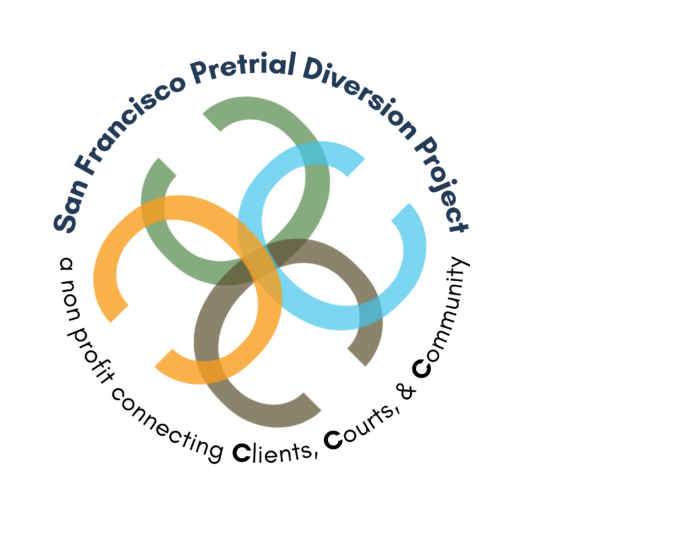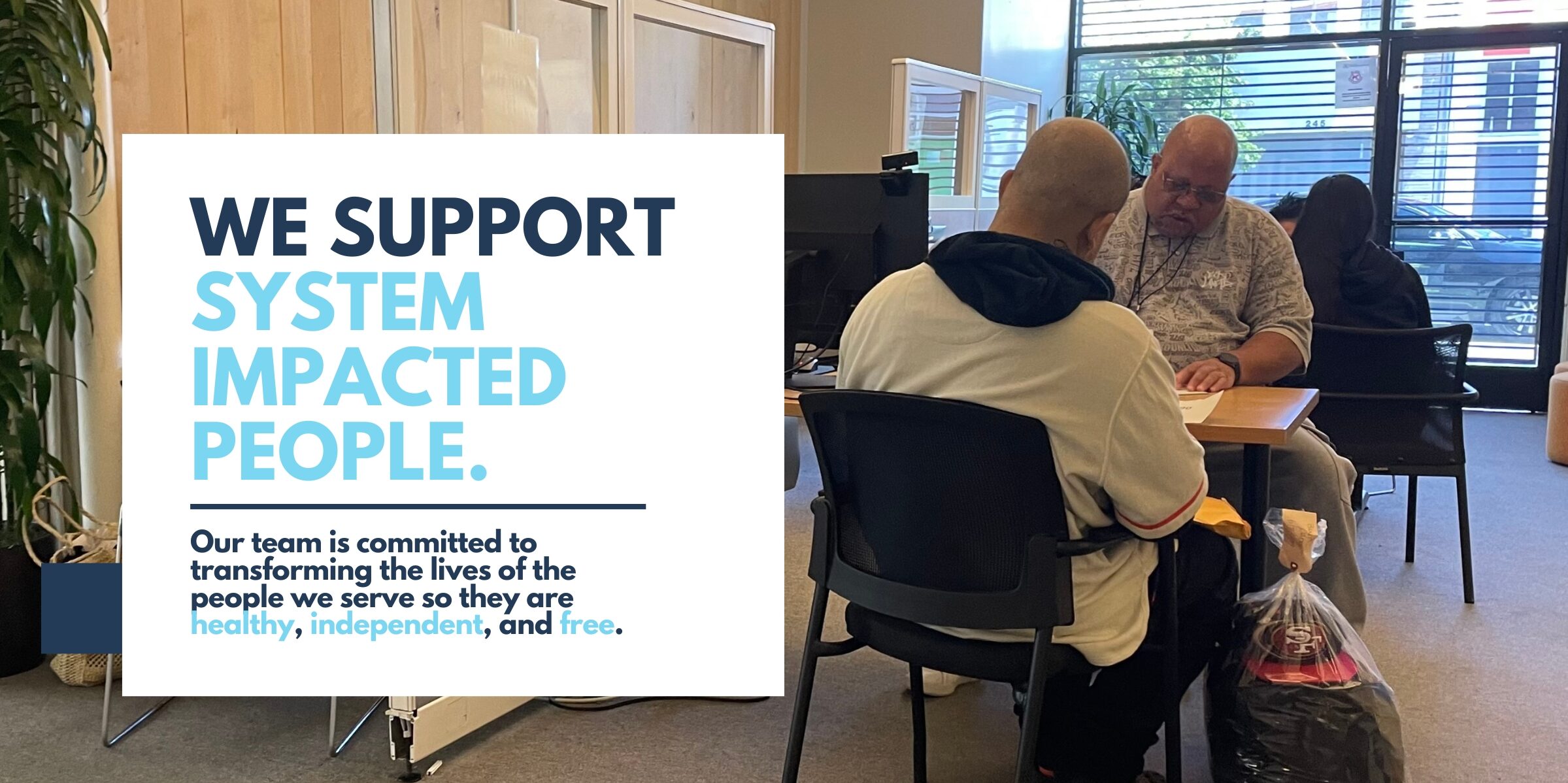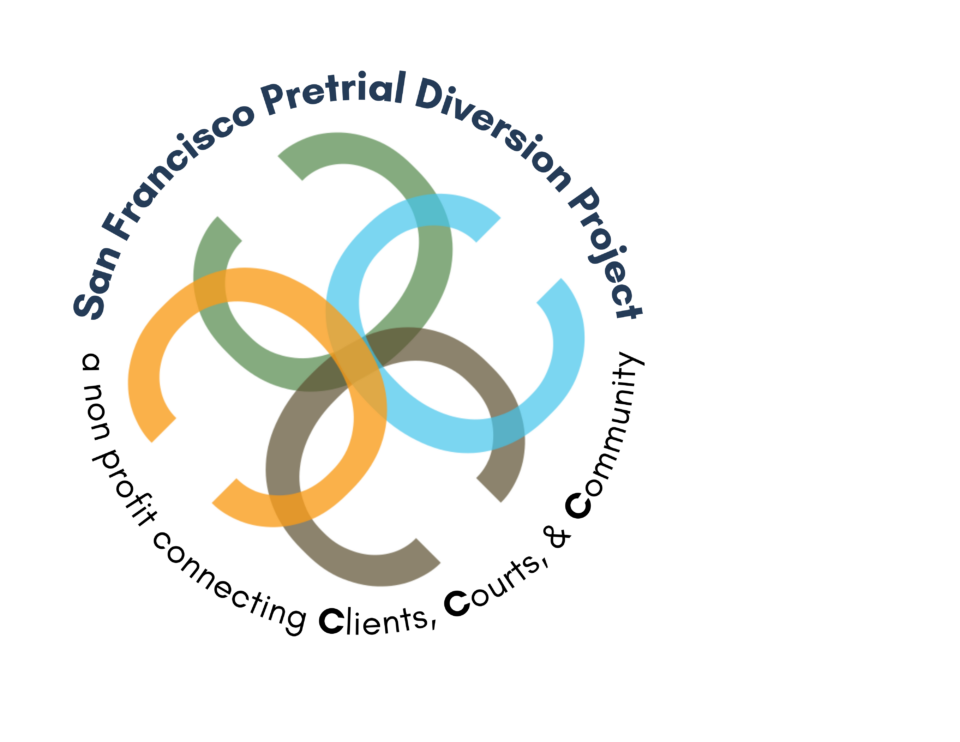April CEO Update From David Mauroff
An Uncertain Future
Eight months in as a first time CEO, and the most challenging aspect of my role is our fight for survival. In some ways it mirrors the vulnerability of the people we serve as they enter into what can be a harsh and unsympathetic system. Based on 2015 statistics, about ⅓ of the adult working population have a rap sheet, and there as many people with criminal backgrounds as there are with four-year college degrees. That could be any of us, and that moment of being arrested is horrifying and hopeless, and only exacerbated by not having anyone on your side.
SF Pretrial screens about 6,500 people a year as they are booked into County Jail. Although we have been embedded in the Courts and pretrial process for over 43 years, and are sometimes mistaken as a government agency; we are deeply rooted in the community and needs of our clients. Equally embedded is our philosophy of dignity, respect, compassion and accountability.
The Unfortunate Reality
The numbers are grim. Two or more days of pretrial incarceration results in a significantly higher likelihood of losing jobs, housing or child custody. People who remain in jail pretrial are convicted at higher rates, sentenced to longer periods of time and are more likely to be re-arrested. Families who pay bail are often forced into debt and may lose their vehicles and/or homes. Innocent until proven guilty is debatable when considering those outcomes, especially for people of color.
Expertise honed through decades of practice makes a difference. We make recommendations to Judges about a person’s likelihood to appear for Court and their threat to public safety. It is an enormous responsibility, and our outcomes speak for themselves. Approximately 87% of our clients show up for Court and 90% do not commit additional crimes. We provide objective and factual data so our partners make informed decisions that prioritize success and safety.
A Real Solution
Our staff personalize the process by making clients feel valued. We provide support and hope as clients are greeted upon release from lock-up, and heat up meals for our homeless and hungry clients when they arrive at the office. Warm jackets and court clothes are also on hand. Operating 365 days a year can take its toll, but who wants to spend Thanksgiving or New Year’s Day in jail? Thanks to the diligent work of our team and the support of our criminal justice partners, we do our best to make sure it only happens when absolutely necessary.
The fight for our survival? As a result of SB 10 and state budget legislation, the City & County of San Francisco is deciding between retaining the current structure or eliminating our agency and moving pretrial services into law enforcement. The Mayor’s Office convened a meeting today to discuss the topic, but the outcome is still uncertain. The Mayor and her staff will determine our fate over the next few days. Your voice could be the difference, so please contact me below if you want to support SF Pretrial.
Jeff Adachi – The Loss of a Criminal Justice Warrior
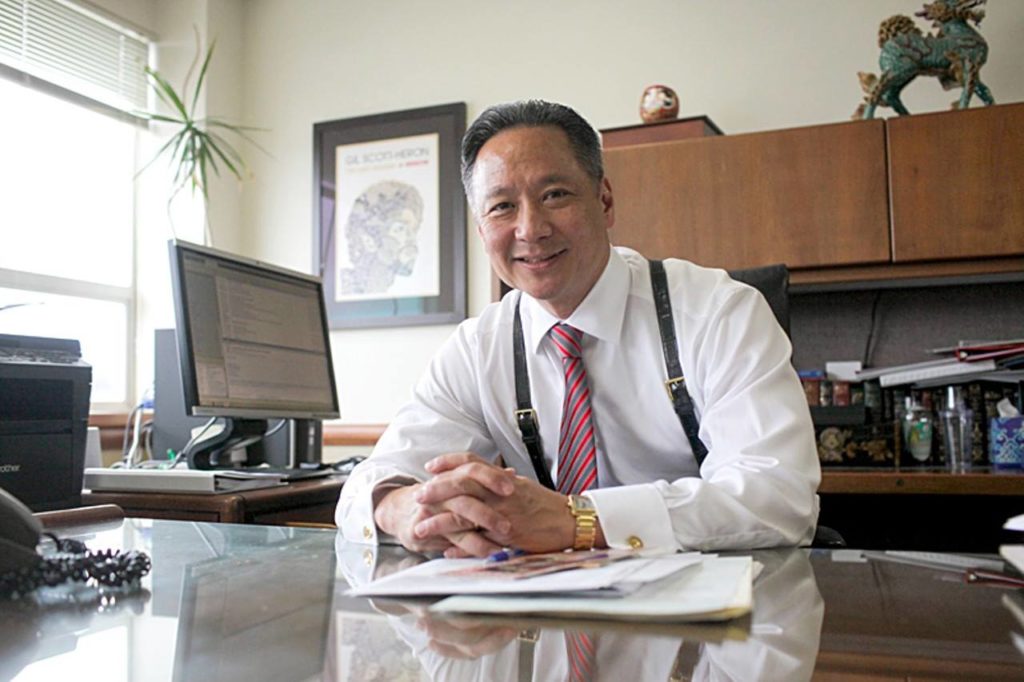
San Francisco Pretrial mourns the untimely passing of a trusted ally and criminal justice warrior, Jeff Adachi. Jeff’s advocacy and support for an independent pretrial agency in San Francisco was invaluable to our organization and his unflinching commitment to protect the rights of the marginalized deeply connected him to our work. He was a true visionary and changed the landscape of criminal justice not just in San Francisco, but nationally. Our sincere condolences go out to Jeff’s family and his colleagues at the Public Defender’s Office. He will be missed, but his legacy and his vision for a more just world will persist in the work we do.
Mamta Ahluwalia, Board President
San Francisco Pretrial Diversion Project
Fairness & Equity are Paramount – Alisha Alcantar Tomovic Testimony to the San Francisco Board of Supervisors on 12/11/18
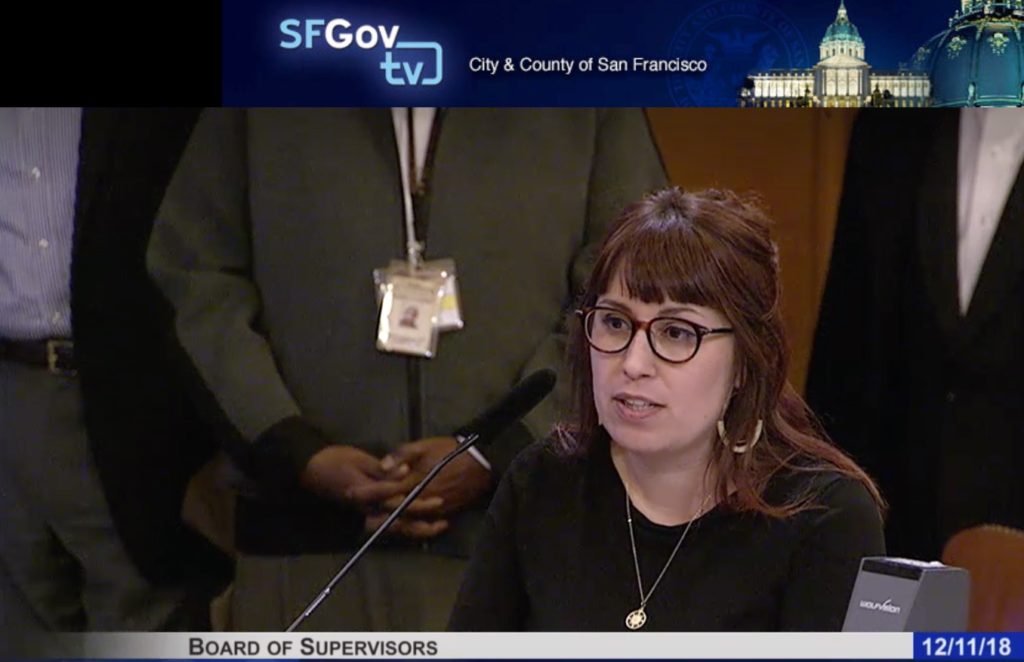
I am here to urge the Board of Supervisors to adopt the resolution urging the Mayor’s Office to maintain the structural independence of the Pretrial Services Programs in San Francisco.
While I am grateful for the progressive movement towards a more equitable pretrial system that the California legislators designed with SB10, I believe that a truly equitable and independent pretrial system is one where the process is not lead or applied by a law enforcement body, but an agency with deep understanding of the legal and ethical principles that underlie pretrial services. This is not to say that law enforcement agencies do not or cannot abide by legal doctrine, or make equitable decisions. But there are fundamental differences in the application of pretrial services and law enforcement services such as probation.
Probation is a criminal sanction, focused on rehabilitation and long-term impact on criminal behavior in lieu of incarceration – it is a sentence. The presumption of pretrial release is a constitutional right, a protected regulatory process that is limited to the pretrial period. It is a process that is a logical extension of the presumption of innocence. These differences lead to clearly distinguishable operational practices that necessitate a working knowledge and application of pretrial principles. Misapplication or commingling of these principles and operations can lead to inequitable outcomes. San Francisco has consistently been on the forefront of transparent, equitable, and collaborative social change. I urge you to maintain this process and provide a platform to model these shared values for our communities in San Francisco.
*Whereas in San Francisco, since its inception in April 2016, the PSA Tool has identified approximately 20% of defendants as “high-risk” – meaning the release is not recommended due to risk score.
“Who Are You Calling Unfair?” An Online Discussion of Pretrial Fairness
Below are links to an on-line discussion about pretrial services, dignity, respect and fairness as it relates to the work of SF Pretrial and other agencies involved with the Pretrial Justice Institutes Smarter Pretrial training series.
“The concept of procedural justice invokes the idea that treating people in a humanizing and respectful manner is not only the right thing to do, but can improve the effectiveness and transparency of an organization. Unfortunately, on too many occasions we have seen pretrial processes that reflect anything but these values.
The San Francisco Pretrial Diversion Project (SF Pretrial) selected procedural justice as their subject of Smarter Pretrial technical assistance. According to SF Pretrial, the ultimate goal of employing procedural justice was to “make the pretrial justice system more navigable, transparent, and humanizing for justice-involved populations.” As part of their efforts, for example, SF Pretrial designed written information about their program that was clearer and more complete, as well as in both English and Spanish. SF Pretrial also began including principles of procedural justice in their staff training, emphasizing eye contact, engaged demeanor, openness to questions, and clear communications.
The potential for procedural justice to help create a new paradigm of pretrial justice could be significant. SF Pretrial implemented procedural justice-informed changes during the same time as the Humphrey decision and conversations around pretrial justice via SB 10 so it is impossible to directly attribute specific causes, but four key measures—judicial concurrence rates, release rates, appearance rates, and public safety rates—showed improvements after the implementation of procedural justice concepts. Other studies have shown that treatment courts that employ procedural justice have improved rates of completion.“
Louie’s Story
Travails, Triumph, and the Power of Community
One of our exemplary former clients–someone we will refer to as Louie to protect his privacy—ascribes his success to a few select individuals who encouraged him throughout his journey.
Louie was born in Chicago to a family with connections to the Mob. In his formative years, he suffered abuse and serious trauma from his grandfather and, separately, his mother. As he grew older, his grandfather began to teach him how to make a lucrative living through commercial burglary. At the age of 13, Louie ran away from home and started using methamphetamine. From that point forward, he became increasingly involved in a criminal lifestyle. During the various stages of his recidivism, the longest he stayed out of prison was 11 months. While he found solace in working as a GED clerk and teaching literacy to other inmates in prison, he was necessarily pulled into illegal activities by inmates who would have otherwise threatened his safety.
Based on Louie’s history of substance abuse, relapse, and recidivism, many in our society would have written him off as a lost cause in the early stages of his adversity. Despite difficult odds, Louie still found crucial support in the form of a few personal advocates. The last parole officer that Louie worked with saw his potential and encouraged him to move to San Francisco to escape the dregs of Los Angeles. Next, Louie found a staff at the San Francisco Pretrial Diversion Project (SFPDP), whom Louie convinced to take a chance on him. Through the services at SFPDP, Louie found harm reduction programs and connected with a PTSD therapist who provided him with the knowledge and wherewithal to identify, label, and address past traumas. On top of an ongoing relationship with the PTSD therapist, Louie continues to meet with a case manager at SFPDP, who has witnessed firsthand Louie drive to attain the skills necessary to fulfill his professional ambitions.
None of this is to say Louie’s relationships with his advocates streamlined him to sobriety and stability. Even after moving to San Francisco, he relapsed and faced temptations to return to his past lifestyle choices. While, at times, Louie’s progress was incremental, his eventual successes speak for themselves. He has been 7 years without alcohol and 10 years without drugs. When thinking back on the trials and tribulations of maintaining sobriety, Louie discussed resisting drinking to the point that all of the beer in his fridge went stale. He is five credits away from getting his Drug and Alcohol Counselor Certification with the short-term goal of becoming a Peer Advocate, where he would be forming relationships with high-needs populations, making outreach efforts, and making plans for short- and long-term client success. In the longer term, Louie wants to become a Case Manager and attain a Master’s Degree. To quote someone close to Louie who encouraged him to pursue further education despite being older than his classmates: “You’re going to be 65 anyway, you might as well be 65 with a Master’s Degree.”
One of the many things that makes Louie’s story remarkable is that he has the drive to channel his lived experiences in a constructive way. Given his ability to turn his life around, he acknowledges the positive impact he can have on others.
Louie’s story demonstrates the fortitude of human spirit. We are proud to have worked with him and look forward to what lies ahead.
